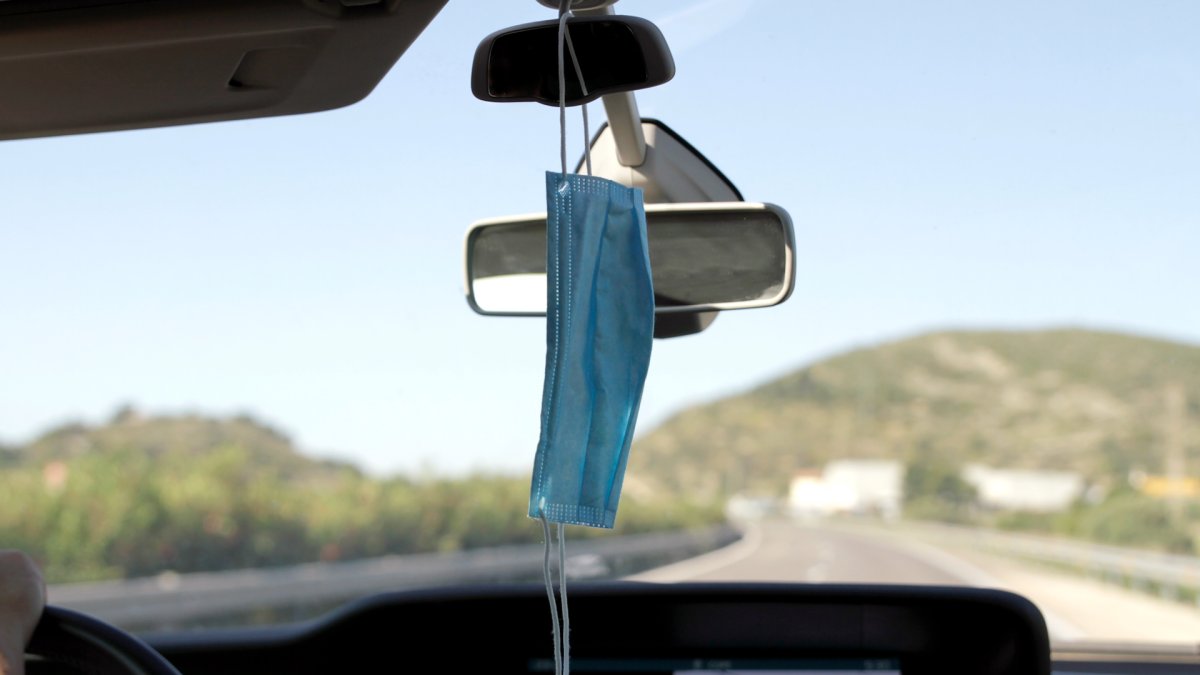
Connecticut and the District of Columbia were removed from Chicago’s travel advisory, city officials announced Tuesday, marking the only locations to not be listed under the “orange” category of the travel guidance.
Chicago's travel advisory has been updated once again, and although there are still 48 states and three territories on the city's warning list, the locations included still changed.
That's because Connecticut and the District of Columbia, both of which had been dropped from the advisory last week, are now back under the "orange category," which recommends unvaccinated travelers from such locations test negative for COVID-19 and quarantine.
At the same time, however, California and Puerto Rico fell off.
States are added to the advisory's "orange list" when COVID metrics rise above the threshold of 15 cases per day per 100,000 people. Any below that mark are on the "yellow" list, with public health officials still warning against non-essential travel.
Feeling out of the loop? We'll catch you up on the Chicago news you need to know. Sign up for the weekly Chicago Catch-Up newsletter here.
"Because California and Puerto Rico maintained their daily COVID case rates of under 15.0 per 100,000 residents for two consecutive weeks, they have come off the travel advisory list," the Chicago Department of Public Health said in a release. "The daily case rates for Connecticut and DC crept back over 15 per 100,000 residents over the past week, and they have gone back onto the Travel Advisory."
Previously, the advisory was updated to include every U.S. state and territory.
“The states on the Travel Advisory might change from week to week, but one thing that does not change is the fact that if you want to travel freely without needing to get tested or self-quarantine for a week, get vaccinated,” said CDPH Commissioner Dr. Allison Arwady. “Being fully-vaccinated when you travel is like having a TSA pre-check – it’s not a free pass, and you still need to be careful and adhere to all the safety guidelines to keep yourself and others well, but it certainly makes everything easier and you’ll have less to worry about.”
Local
States and territories currently on the advisory include: Alabama, Alaska, Arizona, Arkansas, Colorado, Connecticut, Delaware, Florida, Georgia, Hawaii, Idaho, Indiana, Iowa, Kansas, Kentucky, Louisiana, Maine, Maryland, Massachusetts, Michigan, Minnesota, Mississippi, Missouri, Montana, Nebraska, Nevada, New Hampshire, New Jersey, New Mexico, New York, North Carolina, North Dakota, Ohio, Oklahoma, Oregon, Pennsylvania, Rhode Island, South Carolina, South Dakota, Tennessee, Texas, Utah, Vermont, Virginia, Washington, West Virginia, Wisconsin, Wyoming, District of Columbia, Guam and the Virgin Islands.
Just before the Labor Day, the city updated its guidance for what unvaccinated travelers visiting or returning from such locations should do, adding new testing and quarantining recommendations before and after travel.
According to the city, before travel, unvaccinated individuals should:
- Get tested 3-5 days prior to departure.
While traveling:
- ALL individuals regardless of vaccination status should wear a mask on planes, buses, trains, and other forms of public transportation traveling into, within, or out of the United States and while indoors at U.S. transportation hubs such as airports and stations.
- In Chicago, wear a mask in all indoor public settings, regardless of vaccination status.
- Avoid crowds, try to stay at least 6 feet/2 meters (about 2 arm lengths) from anyone who is not traveling with you, and wash your hands often or use hand sanitizer (with at least 60% alcohol).
After travel, unvaccinated individuals should:
- Get tested with a viral test 3-5 days after travel AND stay home and self-quarantine for a full 7 days.
- Even if you test negative, stay home and self-quarantine for the full 7 days.
- If your test is positive, isolate yourself to protect others from getting infected.
- If you don’t get tested, stay home and self-quarantine for 10 days after travel.
- Avoid being around people who are at increased risk for severe illness for 14 days, whether you get tested or not.
The city advised all travelers to monitor themselves for COVID-19 symptoms and isolate and get tested if they develop any after travel.
"We have seen and know that travel is a significant risk factor for acquiring COVID," Arwady said. "If you decide not to get tested, the recommendation is actually to stay home and self quarantine for 10 days after travel, and you should avoid being around anybody who has an increased risk for severe COVID outcomes for 14 days after travel regardless of whether you get tested or not. Obviously we want anybody who's traveling to self monitor for COVID symptoms and get tested if you develop symptoms."
This week's update to the travel advisory comes at a time when the average daily number of new cases in Chicago is down to 414 per day - an 8% decrease over the previous week, according to city data Tuesday.
That figure is still more than 12 times the low of 34 that the city saw in late June but remains lower than the more than 700 cases per day the city was seeing during the most recent surge earlier this year.
Hospitalizations in Chicago are down 50% from the previous week and deaths dropped 3% from the week prior, per the city's data. The positivity rate in testing is down to 3% this week, a drop from 3.7% in the last week.
Arwady noted last month that about 99% of new COVID cases, hospitalizations and deaths are among unvaccinated individuals.
The travel advisory is updated every Tuesday, with any changes taking effect the following Friday.